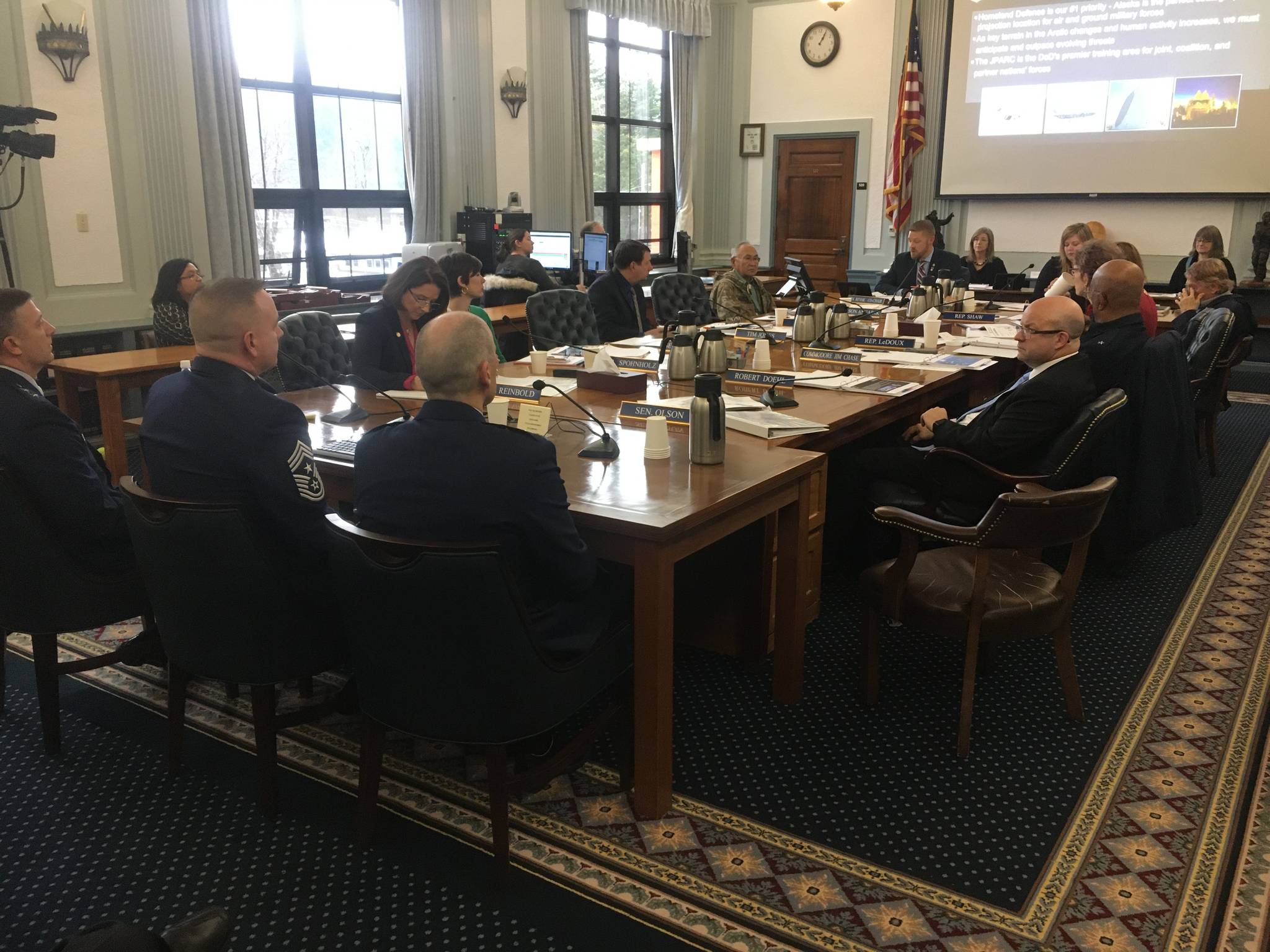Russian and Chinese interest and power in the Arctic will continue to grow, an expert in Arctic policy testified before lawmakers Thursday.
“Every time we think about the Arctic from now on, we should think about China,” said Mike Sfraga, the director for the Polar Institute, part of the Woodrow Wilson Center, a Washington, D.C., thinktank. “We should think about China and their motivations.”
Sfraga testified before the Joint Armed Services Committee of the Alaska Legislature Thursday afternoon, along with Lt. Gen. Thomas Bussiere, the commanding general of the Alaskan NORAD Region, Alaska Command and 11th Air Force.
Sfraga framed the issues facing the Arctic through a lens he termed the “7 C’s”: climate, commodities, commerce, connectivity, communities, cooperation and competition. All are factors in the rising importance of the Arctic, as sea lanes open, more resources become available, and the rapid and relentless effects of global warming change life for everyone living in the north.
“That’s why I’ve called Alaska the nation’s vanguard. It’s a new ocean and new competition,” Sfraga testified before the committee. “Alaska is part of a bigger geopolitical play for the entire world, not just the Arctic.”
Sfraga testified on the importance of increased naval power, icebreakers and a deepwater port in Alaska. Russia has designs to make the Arctic an economic preserve backed up by military might, Sfraga said, clinging to the wealth of the Arctic as their population growth stagnates.
“Progress is being made on the Polar Security Cutters. That’s a good thing,” Sfraga said. “This nation needs a deepwater port. Pick one, and then do a Manhattan Project on it.”
He also cautioned against the Arctic ambitions of Russia and China. China, while not technically an Arctic power, has often ignored international court rulings and precedents and does what it pleases, Sfraga said.
“Russia is a declining superpower in population and economic power. China is the opposite. They have the ability to build more icebreakers. They will go both north and south. There will be more Chinese naval ships and cutters in the Arctic. The dragon will be shown up there.”
Bussiere testified about the readiness of the military commands in Alaska to defend the homeland in the Lower 48, and highlighted the rising tempo of military exercises in the region.
“Homeland defense is our No. 1 priority,” Bussiere testified. “We believe that the changing climate presents opportunities and a challenge.”
Increased emphasis on the defense of the Arctic and requirements for cold weather operations have seen a push from the Navy and Marine Corps to expand training in Alaska, recently demonstrated recently in a joint exercise in coastal Alaska. Bussiere also pointed to the imminent arrival of squadrons of the advanced F-35 multirole fighter.
Whatever the future holds, Bussiere said, the military will be ready to meet it, in cooperation with the communities and people of Alaska, emphasizing engagement. Without the support of Alaskans, Bussiere said, the military could not do its job.
• Contact reporter Michael S. Lockett at 757.621.1197 or mlockett@juneauempire.com.

